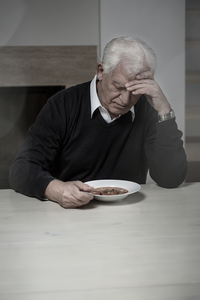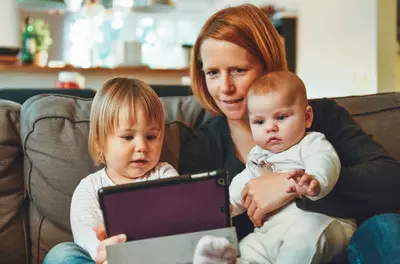Why Personal Relationships Are Important

Healthy relationships are a vital component of health and wellbeing. There is compelling evidence that strong relationships contribute to a long, healthy, and happy life. Conversely, the health risks from being alone or isolated in one's life are comparable to the risks associated with cigarette smoking, blood pressure, and obesity.
Research shows that healthy relationships can help you:
Live longer
A review of 148 studies found that people with strong social relationships are 50% less likely to die prematurely. Similarly, Dan Buettner’s Blue Zones research calculates that committing to a life partner can add 3 years to life expectancy (Researchers Nicholas Christakis and James Fowler have found that men’s life expectancy benefits from marriage more than women’s do.)
 Deal with stress
Deal with stress
The support offered by a caring friend can provide a buffer against the effects of stress. In a study of over 100 people, researchers found that people who completed a stressful task experienced a faster recovery when they were reminded of people with whom they had strong relationships. (Those who were reminded of stressful relationships, on the other hand, experienced even more stress and higher blood pressure.)
Be healthier
Research indicates that strong relationships contribute to health at any age. According to research by psychologist Sheldon Cohen, college students who reported having strong relationships were half as likely to catch a common cold when exposed to the virus, while an AARP study with older adults found that loneliness is a significant predictor of poor health. More generally, a 2012 international Gallup poll found that people who feel they have friends and family to count on are generally more satisfied with their personal health than people who feel isolated.
Moreover, hanging out with healthy people increases your own likelihood of health—in their book Connected, Christakis and Fowler show that non-obese people are more likely to have non-obese friends because healthy habits spread through our social networks.
Feel richer
A survey by the National Bureau of Economic Research of 5,000 people found that doubling your group of friends has the same effect on your wellbeing as a 50% increase in income!
 On the other hand, low social support is linked to a number of health consequences, such as:
On the other hand, low social support is linked to a number of health consequences, such as:
- Depression. Loneliness has long been commonly associated with depression, and now research is backing this correlation up: a 2012 study of breast cancer patients found that those with fewer satisfying social connections experienced higher levels of depression, pain, and fatigue.
- Decreased immune function. The authors of the same study also found a correlation between loneliness and immune system dysregulation, meaning that a lack of social connections can increase your chances of becoming sick.
- Higher blood pressure. University of Chicago researchers who studied a group of 229 adults over five years found that loneliness could predict higher blood pressure even years later, indicating that the effects of isolation have long-lasting consequences.
According to psychiatrists Jacqueline Olds and Richard Schwartz, social alienation is an inevitable result of contemporary society's preoccupation with materialism and frantic "busy-ness." Their decades of research supports the idea that a lack of relationships can cause multiple problems with physical, emotional, and spiritual health. The research is clear and devastating: isolation is fatal.

Relationships and healing
In this video, Michael discusses how relationships with family, friends, and community have provided healing after his diagnosis of brain cancer.

According to Dr. James Martin from the Academy of Family Physicians, families establish patterns of preventive care, exercise, hygiene, and responsibility, and they set the foundation for self-worth, resilience, and the ability to form healthy and caring relationships.
Families who balance their time more effectively have better overall relationships, and consequently better health.

Learn more with Wellbeing U
Wellbeing U, one of our free online learning platforms, offers a course on growing your relationship with Jen Elmquist, licensed family therapist and author of Relationship Reset.
http://www.gallup.com/poll/152738/Social-Support-Linked-Health-Satisfaction-Worldwide.aspx
AARP. (2010). Loneliness Among Older Adults. Retrieved Aug., 2017 from http://www.aarp.org/content/dam/aarp/research/surveys_statistics/general/2012/loneliness_2010.pdf
Carlisle, M., Uchino, B.N., Sanbonmatsu, D.M., Smith, T.W., Cribbet, M.R., Birmingham, W., Light, K.C., Vaughn, A.A. (2012). Subliminal activation of social ties moderates cardiovascular reactivity during acute stress. Health Psychology;31(2):217-25.
Christakis, N.A., Fowler, J. (2009). Connected. New York: Hatchette Book Group.
Cohen, S., Doyle, W.J., Turner, R., Alper, C.M., Skoner, D.P. (2003). Sociability and susceptibility to the common cold. Psychological Science;14(5):389-95.
Hawkley, L.C., Cacioppo, J.T. (2007). Aging and loneliness: Downhill quickly? Current Directions in Psychological Science; 16: 187–191.
Hawkley, L.C., Thisted, R.A., Masi, C.M., Cacioppo, J.T. (2010). Loneliness predicts increased blood pressure: Five-year cross-lagged analyses in middle-aged and older adults. Psychol Aging; 25: 132–141.
Helliwell, J.F., Huang, H. (2013). Comparing the happiness effects of real and on-line friends. National Bureau of Economic Research. Working paper 18690. Retrieved from http://www.nber.org/papers/w18690.pdf.
Holt-Lunstad, J., Smith, T. B., & Layton, J. B. (2010). Social relationships and mortality risk: A meta-analytic review. PLoS Medicine, 7(7), e1000316.
Holt-Lunstad, J., et al. (2015). Loneliness and Social Isolation as Risk Factors for Mortality: A Meta-Analytic Review. Perspectives on Psychological Science, 10(2), 227–237
Jaremka, L.M., Fagundes, C.P., Glaser, R., Bennett, J.M., Malarkey, W.B., Kiecolt-Glaser, J.K. (2012). Loneliness predicts pain, depression, and fatigue: Understanding the role of immune dysregulation. Psychoneuroendocrinology; pii: S0306-4530(12)00403-9. doi: 10.1016/j.psyneuen.2012.11.016. [Epub ahead of print].
Olds, J., Schwartz, R. (2010). The lonely American: Drifting apart in the twenty-first century. Boston, MA: Beacon Press.


